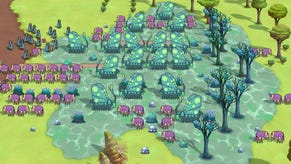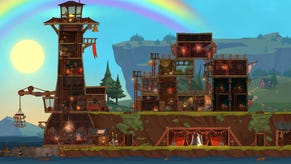PCs Are 10x More Powerful Than Consoles
Much like I am ten times more powerful than Quintin, the PC is ten times more powerful than the consoles, according to AMD spokesman Richard Huddy. Which leaves him, and us, wondering why the PC version of games often feels more hobbled than bounding ahead. In fact, in some ways the PC is running at a tenth of the ability of consoles. He told Bit-Tech,
"To a significant extent that's because, one way or another and for good reasons and bad - mostly good - DirectX is getting in the way."
It's not too surprising. The 360 is over five years old, the PS3 well over four. While both Microsoft and Sony are maintaining they're only midway through their console's lifetimes, the tech is achingly out of date. While the PC hasn't had to make any massive advancements in graphics to keep up in a cross-platform world, the technology has continued to advance despite this. And AMD are saying that the contents of our boxes are being artificially held back from realising their true abilities.
Huddy told Bit-Tech,
"We often have at least ten times as much horsepower as an Xbox 360 or a PS3 in a high-end graphics card, yet it's very clear that the games don't look ten times as good. To a significant extent, that's because, one way or another, for good reasons and bad - mostly good, DirectX is getting in the way."
It seems there is growing pressure on Microsoft to do away with the need for DirectX, which is restricting developers' ability to take advantage of the hardware. On the consoles they can program for the available tech, but on PC they must negotiate the DX API (application programming interface). Huddy continues,
"By giving you access to the hardware at the very low level, you give games developers a chance to innovate, and that's going to put pressure on Microsoft – no doubt at all. Wrapping it up in a software layer gives you safety and security, but it unfortunately tends to rob you of quite a lot of the performance, and most importantly it robs you of the opportunity to innovate."
If you're now thinking, "But what about shaders?" then you know far more about this subject than I can pretend to, so you should get yourself over to the Bit-Tech story to read all the gory details. But for me, and my simple ways, the following just sounds bad:
"These days we have so much horsepower on PCs that on high-resolutions you see some pretty extraordinary-looking PC games, but one of the things that you don't see in PC gaming inside the software architecture is the kind of stuff that we see on consoles all the time. On consoles, you can draw maybe 10,000 or 20,000 chunks of geometry in a frame, and you can do that at 30-60fps. On a PC, you can't typically draw more than 2-3,000 without getting into trouble with performance, and that's quite surprising - the PC can actually show you only a tenth of the performance if you need a separate batch for each draw call."
Crytek's technical director, Michael Glueck, expressed an interest in programming "direct to metal", as I'll now say with more confidence than I deserve. It's problematic, it seems, with varying PC setups not being catered for by the API. But it would also allow the real power inside to be realised.
Thanks to Eurogamer for bringing the story to our attention. In other news, "Huddy" is the name by which my housemate, Craig Pearson, refers to House and Cuddy.









